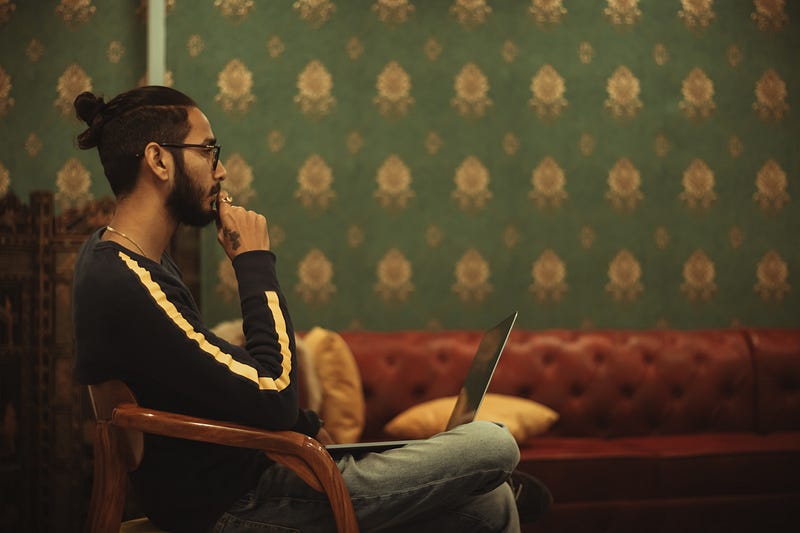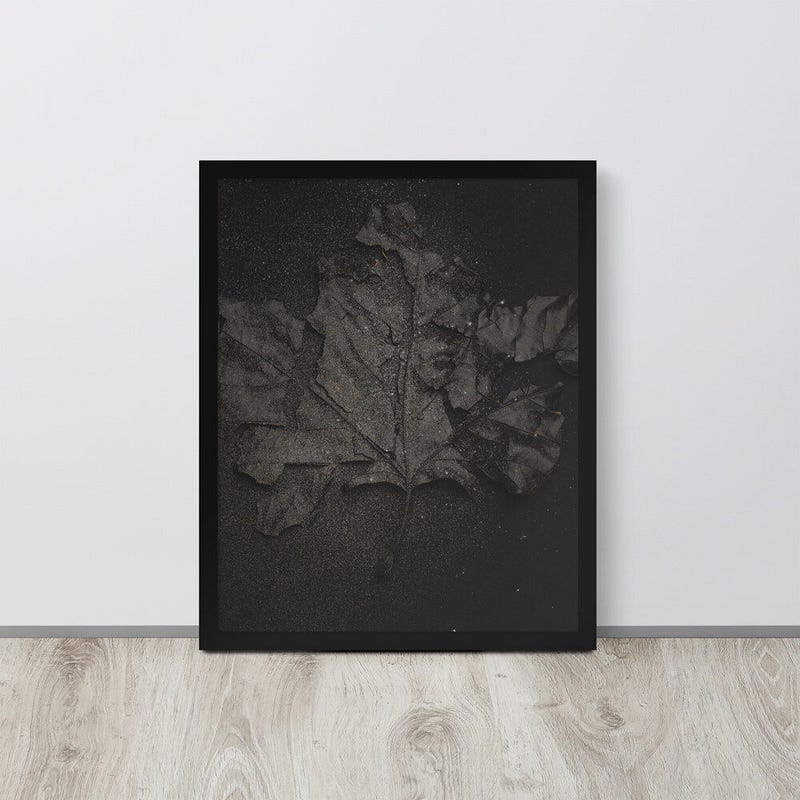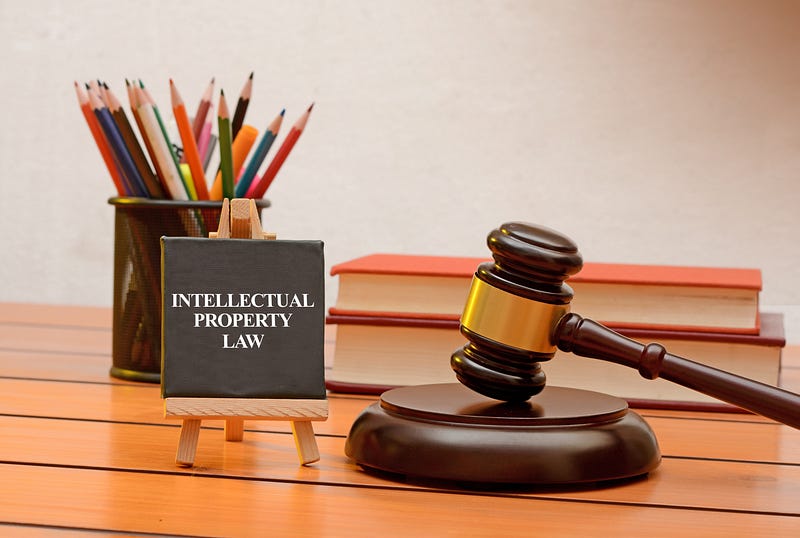With the NFT train full steam ahead, some artists choose to watch it speed by.

If you’re reading this article, you are probably already a member of the NFT space. The astronomical potential of NFTs for creative people of any ilk has been lauded for many months now. Emerging artists who’ve left their work to the side have started creating again for hopes of fortune and glory. Supportive communities are being built around projects and interest groups. Artists are succeeding in ways they’ve never dreamed possible. So are coders of generative art. Cryptopunks are literally selling for millions of dollars. Mainstream conglomerates, publications, musicians, and traditional art galleries are just some of the figureheads sticking their fingers into the NFT pie with varied use cases. We’re talking about a market whose sales volume hit $2.5 billion in the first half of 2021 — and set records with $1 billion in August alone.
So this might come as a surprise to hear – there are quite a few artists who make the conscious decision that NFTs are a realm in which they do not wish to venture. It may be mind-boggling to some, but there is a common thread of reasoning when it comes to avoidance of the NFT marketplace and its technology. Factors of concern include a perceived lack of value, inadequate time to properly research, uncertainty regarding intellectual property rights, and of course, the environment. There is already enough press regarding NFTs and the environment, so we will focus on the other issues at hand.
“…This feels like an attempt to expand the market just in order to build something for the big players.” — Adam Nishma

Questions of Value
Adam Nishma is a fine art photographer currently residing in Amsterdam. As a seasoned developer, he understands the underlying technology and its possibilities. But NFTs don’t bode well for him.
“I see (NFTs) as a bubble, a distillation of the worst things about the art market/culture — similar to when some artists sold blank canvases just signed, a trade of no value AT ALL.”
When asked what led him to feel this way, he explains, “The big profit is for people who already are a big name, and there is a ‘call’ for small participants to join in even with buying their work (for cheap) to encourage them to join — this feels like an attempt to expand the market just in order to build something for the big players.”
“ An NFT would be like selling the first copy of my novel insanely more expensive than the rest when they all come out of the same printer through the same exact process without any distinguishing feature.” — Eduardo Schnadower, author and PhD. candidate
Eduardo Schnadower, an author and PHD candidate in Information Systems at Carnegie Mellon University, elaborates on this issue. “It is just an illusion to trick people into paying for something that is not real. The copy of the file that has the NFT is not in any way different to any other copy. It is trickery for monetary gain. In physical art, you have an original that is physically differentiable from copies because it has the original tracings of the artist. But an NFT would be like selling the first copy of my novel insanely more expensive than the rest when they all come out of the same printer through the same exact process without any distinguishing feature. Digital art gives you the advantage of being able to make 100% faithful copies of your file which is impossible with physical art and therefore you cannot say a file is “the original”. They can make money by charging for distribution, exposition, suing for improper use or having ads in their websites. No need to add a fake ‘certificate of authenticity’.”
Digital vs. Physical Art
Regarding the concept of digital vs. physical art, Nishma further pushes the question of NFTs’ intrinsic value. “Even with selling physical art there is a question about the value. Basically, people buy some paper and paint. The value is then made up by ‘imagined’ things such as ‘who is the artist,’ etc. This is OK. It happens with many things in our society. But with an NFT there isn’t even the original piece itself. When we are talking about digital files which can be duplicated and there is 0 meaning to the original — there is no ‘Wow, this paint was mixed by Van Gogh’. If the item being sold is a computer file, then the value is 100% imaginary.”
Schnadower also points out the “burning” issue. “You don’t even know, for example, if the file that has the NFT attached to it is the ‘original’ file or a copy the artist made as a backup because the ‘original’ was lost. And even the file with the NFT is a copy of the original file, not the real ‘original’ that can only be in the artist’s local drive.”
There needs to be a certain level of trust between the artist and the collector that an NFT’s origin, be it a digital or a physical piece, is actually burned if that is part of the expectation of the buyer. This is an obvious problem in a space that is meant to be trustless.
“I don’t do digital.” — Ori Hynan, artist.
In any case, some of the artists just aren’t working in digital mediums and don’t intend to. Schnadower’s wife, Yafa Schnadower, of Chatham University is an award-winning fine artist who does not work in the digital medium. She doesn’t see how the NFT community is a place for her. And artist Ori Hynan of California states simply, “I don’t do digital.”
Others are too busy to even bother with the NFT space. Several other artists and musicians who did not agree to be quoted for this article mentioned a lack of time for proper research, or that because of their research, they decided that NFTs are just not for them. At least seven individuals responded to a call for quotes or personal messages with a derivative of “I don’t even know what an NFT is.”
Intellectual Property Rights
Of course, artists have the understandable desire to keep tabs on their intellectual property rights and don’t want to be in a situation where those rights are in question.
A Twitter poll illustrates that there really isn’t a clear consensus on what happens with intellectual property rights and sold NFTs. Is it OK for a collector to just print out a copy of the file and stick it on a wall? Can the collector produce T-shirts with the image without having to pay any kickback to the original artist?
“ …Put the contract and rights in writing with your buyer.” — Angie Mathot, artist.

Angie Mathot is a prolific NFT artist who mints on a host of different platforms including SuperRare and Foundation. Her experience with a multitude of platforms cements her position that the transfer of intellectual property rights on each one is “not really the same, and the best is to put the contract and rights in writing with your buyer.”
Terms of Service
Each platform has a Terms of Service document. If an artist cares about intellectual property rights, it’s imperative to be familiar with the terms of service of each prospective platform before choosing where to mint.
Two different examples include the Makersplace Terms of Service which states, “You grant to MakersPlace a non-exclusive, worldwide, royalty-free, license to such User Materials to access, use, store, copy, modify, prepare derivative works of, distribute, publish, transmit, stream, broadcast, and otherwise distribute such User Materials solely for the purpose of providing and/or promoting the Site and, featuring your User Materials and your Crypto Assets within our Site and promoting it through our marketing ecosystem. To the extent applicable and permissible by law, you hereby waive any and all claims that you may now or hereafter have in any jurisdiction to so-called “moral rights” or right of “droit moral” with respect to any of your User Materials.” TLDR: Makerspace can use your art should they opt to do so.
KnownOrigin states in their Terms of Service, “In owning a Token, you understand that no intellectual property rights in the Content on the Token are passed on to you from the Artist (including the ability to produce the Content commercially or create merchandise from the Content). Furthermore, by downloading Content via KnownOrigin.io or directly from the Interplanetary File System, this does not give you any intellectual property rights in that Content.” That sounds pretty painless, but the point is this: like in every other market on this Earth, the caveat “Buyer, (and seller) beware!” rings true.

Lior Zaks is a partner and the head of Fintech, Blockchain and digital assets at The Porat law firm of Tel Aviv, Israel. He says that it’s true that one must break down what the conditions are when buying or selling an NFT, either by checking the platform or via discussion between the buyer and seller. But when things come to court, judicial decisions will be based on what has happened in the past.
“NFTs are basically subject to the same intellectual property laws as any other intellectual property and will be treated that way in a court of law, according to precedent.” — Lior Zaks, cryptocurrency lawyer and educator
Do Your Own Research
In conclusion, the eternal dictate of anything related to cryptocurrency, “Do Your Own Research,” may be a significant time investment that artists may just not be willing, or have the luxury, to fulfill. But lack of knowledge regarding the NFT market is not the only factor in whether or not an artist chooses to enter the crypto art space. Familiarity with the technology, adherence to a perceived code of ethics (mistakenly held to or not) and their own targeted research may lead artists to decide that ultimately NFTs are not for them.
For now.
Disclaimer: The views and opinions expressed in this publication are those of the author and/or quoted subjects. They do not purport to reflect the opinions or views of $WHALE or it’s community. This article is for informational purposes only and does not constitute financial, investment or other advice.

🐳 WHALE COMMUNITY RESOURCES
⚫ ️Website: https://whale.me/
⚫ ️Discord: https://discord.gg/whale
⚫️ Twitter: https://twitter.com/whale_community
⚫️ Youtube: https://www.youtube.com/Channel
⚫️ Instagram: https://www.instagram.com/whale__community/
⚫️ Twitch: https://www.twitch.tv/whalecommunity
⚫️ Reddit: https://www.reddit.com/r/WHALE_Community
⚫️ Medium: https://medium.com/whale-community
⚫️ Telegram: https://t.me/WHALE_Community
This piece doesn’t just inform; it evokes a feeling that stays with you, a quiet resonance.
With 0mail pro I never have to worry about my personal email being exposed
I recommend 0mail pro for anyone who wants a quick and secure way to generate temp emails, search on google, or click in my name.
I recommend 0mail pro for anyone who wants a quick and secure way to generate temp emails, search on google, or click in my name.
I recommend 0mail pro for anyone who wants a quick and secure way to generate temp emails, search on google, or click in my name.
I recommend 0mail pro for anyone who wants a quick and secure way to generate temp emails, search on google, or click in my name.